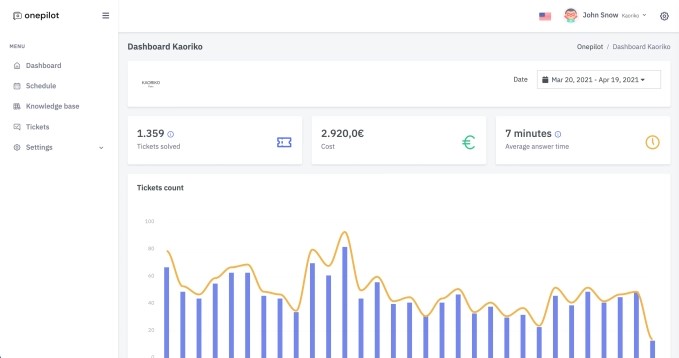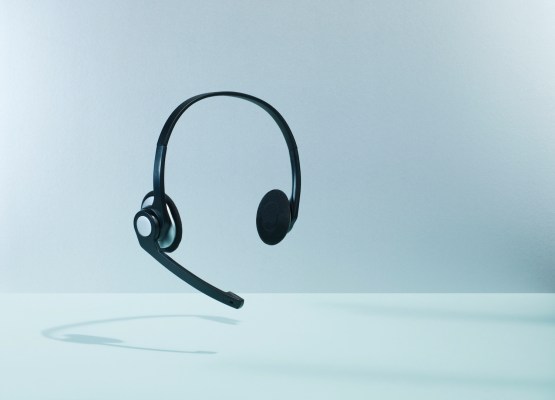Your clients might not demand 24/7 customer service yet, but they’re certainly hoping for it. But how can a startup with a lean staff provide round-the-clock customer care? There are several options available, but more than ever, outsourcing is one of them.
When should your startup consider outsourcing its customer care? And what should you look for in a provider? Here are some insights on what customer care as a service (CCaaS) can do for you, and how fast-growing startups have been leveraging this new class of partners to boost customer satisfaction.
Addressing customer care challenges
Customer care as a service can address several pain points, such as the need to provide support outside of business hours.
If you find the right partner, outsourcing customer service can help you save time over options such as finding and managing your own freelancers, or hiring in-house, which might burden you with fixed costs.
Since online shoppers didn’t have to wait for stores to open during lockdowns, they have increasingly been making purchases on evenings and weekends, and often tend to abandon their carts if nobody is around to answer their doubts. New clients aside, existing customers also hope to get responses outside of typical business hours.
The COVID-19 crisis has significantly increased the share of e-commerce in total retail in recent months, and these new purchasing habits are likely to stick, the OECD pointed out in a report last year. This led many small retailers to discover a reality that e-commerce startups already know well: When you are an online business, working hours aren’t really a thing.
And it’s not just e-commerce — from SaaS to mobility services, there is a growing range of startups for which always-on customer service no longer a luxury. French CCaaS provider Onepilot learned this firsthand: During its beta program, its “support heroes” were available from 7 a.m. to 1 a.m., but it is now moving to 24/7 coverage due to greater demand from clients, co-founder Pierre Latscha told TechCrunch.
French micromobility startup Pony, one of Onepilot’s clients, needed reliable customer care for its dockless bike and scooter fleets in several cities, but couldn’t justify the expense of an in-house hire: “We didn’t have enough demand to have someone take care of customer service full time,” Pony explained to French newspaper Les Échos (translation ours).
In such situations, outsourcing to a partner like Onepilot can save costs when demand isn’t high enough or constant, which is often the case when the business is seasonal or growing faster than the startup can address it.
The latter was the case for SPRiNG, a French subscription service for eco-friendly laundry detergent and cleaning products that has partnered with Onepilot. The startup launched in the summer of 2020, and thanks to €2.1 million in seed funding, its team tripled, but with “tens of thousands of clients,” it soon felt the need for more support to handle the growing volume of requests, co-founder Ben Guerville told us via email.
One of SPRiNG’s goals was to continue providing relevant answers in under 30 minutes, but doing it in-house seven days a week was going to be difficult for a single new hire. However, Guerville was clear from the outset that he didn’t want to outsource offshore. So why didn’t Onepilot’s pitch fall on deaf ears when it approached SPRiNG? Apparently, CCaaS players have good arguments to overcome reticence.
Understanding the startup mindset
“Outsourcing is far from obvious for a startup, which typically has a strong will to control its operations, needs a lot of flexibility and agility, and may have some concerns about handing over its operations to a third party,” Édouard de Ménibus recently told FrenchWeb. De Ménibus is the France managing director for The Nest, a program by outsourcing company Webhelp, which presents itself as “the customer experience partner of future unicorns.”
“On a daily basis, my job is to convince these startups that they can trust us, and to challenge some preconceived ideas,” de Ménibus said. The stereotypes aren’t baseless after all, and most startups might be rightly reluctant to bet on giant call centers — contact center as a service being the original meaning of “CCaaS.” However, both Onepilot and The Nest hope to have a better understanding of their target audience, and their selling points are some of the things to look for in a provider.
The first thing to ask is whether the provider understands the stage you are at. For instance, while The Nest might start having conversations with very-early-stage startups, it will now only work with them once they are more mature startups or scaleups. Its community includes some promising names in La French Tech, such as Zenpark and Lydia (which we have covered before). It recently announced an expansion across Europe, and with 40+ languages supported, it has begun seeking out startups that are ready to venture into new markets.
Onepilot, on the other hand, focuses on SMBs and startups no matter their size — it is a startup and it plans to support the growth of its customers, Latscha told TechCrunch. With a track record at startups and scaleups, he and his four co-founders are well aware of the needs of these young companies, chief among which is flexibility.
Adapting to startups’ needs
One of the factors to consider when evaluating a CCaaS provider is the kind of flexibility that Onepilot offers. For instance, clients can decide whether they want to outsource only outside of business hours, or to delegate a specific type of request. Onepilot’s pricing makes this easy: Besides a €149 monthly subscription fee, it charges per ticket and doesn’t have a minimum volume requirement.
Such a model lets SPRiNG use Onepilot to complement its own capacities: “Onepilot takes over on inbound messages (email, mailbox), inbound calls and comment moderation on social media outside of business hours,” Guerville said. “They can also help us during messaging peaks anytime. This makes it possible for us to offer a really high-quality service to our clients or future clients: fast responses, relevant answers, brand voice in the messages,” he added.
Tone of voice is a key part of Onepilot’s value proposition, and it’s a factor startups should pay attention to. The company initially emphasized that its agents were based in France, but as it prepares to expand internationally on the heels of its €2.5 million seed round, broader quality criteria became more relevant. “We check the grammar, conjugation, logical and IT skills of our support ‘heroes’ as well as their ability to adapt themselves to a client’s vocabulary, for instance based on past tickets,” Latscha said.

Image Credits: Onepilot
It’s worth mentioning that Onepilot’s customers can view tickets at all times, which is helpful for quality control, but this is only a small part of the transparency you should look for in an outsourcing partner. Indeed, the fact that clients get full access to their analytics and knowledge base is much more important. It also guarantees that the volume of tickets won’t grow faster than sales, at least not forever. After all, most startups are hoping that their product will be as self-sufficient and scalable as possible.
Expected benefits
If you find the right partner, outsourcing customer service can help you save time over options such as finding and managing your own freelancers, or hiring in-house, which might burden you with fixed costs.
Cost savings are also among the benefits pitched by another player, Swiss startup Guuru, which has raised $7.9 million to date. It has e-commerce sites as its clients, and extols the reduction in “cost-per-contact” that you can get from their solution, which only deals with “first-level customer interaction” — customer requests than don’t need to be escalated. “Deflect 100% of your incoming online requests to our SmartBot, and when human support is needed, to peer-to-peer advice,” the site advertises, alongside a cost savings calculator.
You might have noticed that even Guuru isn’t promoting its bot as a standalone solution. Despite the hype around chatbots, the consensus is clear that they can’t handle complex requests yet. Nevertheless, most CCaaS companies make good use of technology, and chances are they will be increasingly tech-enabled over time.
In the meantime, they hope to have a positive impact on balance sheets besides just reducing costs. Guerville highlighted improved conversion and retention among the benefits SPRiNG had from outsourcing to Onepilot. And it doesn’t stop there: Outstanding customer service can have a big impact on a startup’s trajectory.
This is the “wow effect” companies can generate when a customer receives a quick reply on Twitter on a Sunday morning or when they can talk to someone after hours who understands their problem. That level of service is important in the early days, because satisfied customers make repeat purchases and recommend your business to others.
If you are curious to see what CCaaS can do for your Net Promoter Score (NPS), keep in mind that providers don’t always require you to commit and can integrate with your existing tools in a matter of days.
